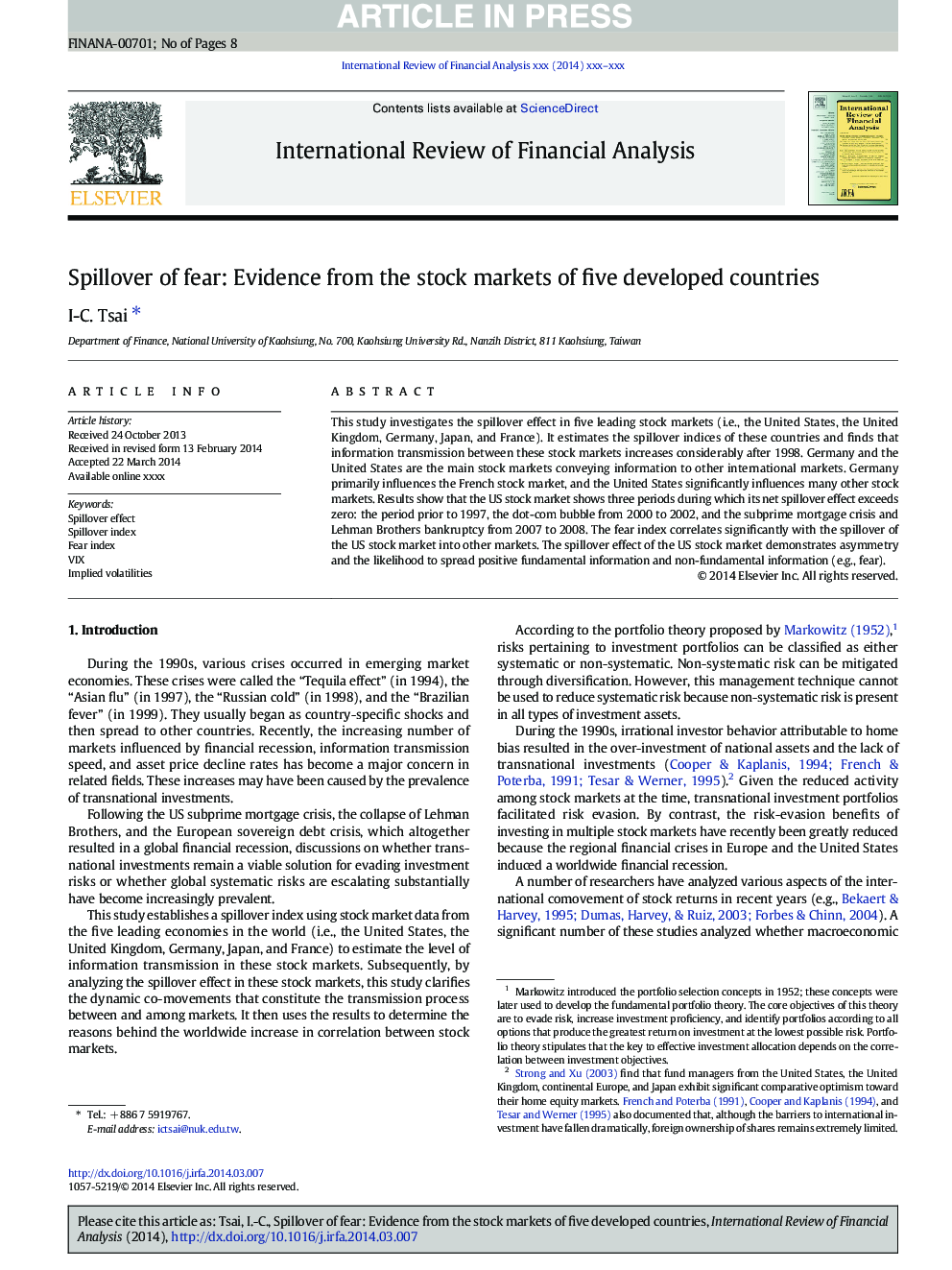| Article ID | Journal | Published Year | Pages | File Type |
|---|---|---|---|---|
| 5084914 | International Review of Financial Analysis | 2014 | 8 Pages |
Abstract
This study investigates the spillover effect in five leading stock markets (i.e., the United States, the United Kingdom, Germany, Japan, and France). It estimates the spillover indices of these countries and finds that information transmission between these stock markets increases considerably after 1998. Germany and the United States are the main stock markets conveying information to other international markets. Germany primarily influences the French stock market, and the United States significantly influences many other stock markets. Results show that the US stock market shows three periods during which its net spillover effect exceeds zero: the period prior to 1997, the dot-com bubble from 2000 to 2002, and the subprime mortgage crisis and Lehman Brothers bankruptcy from 2007 to 2008. The fear index correlates significantly with the spillover of the US stock market into other markets. The spillover effect of the US stock market demonstrates asymmetry and the likelihood to spread positive fundamental information and non-fundamental information (e.g., fear).
Related Topics
Social Sciences and Humanities
Economics, Econometrics and Finance
Economics and Econometrics
Authors
I-C. Tsai,
